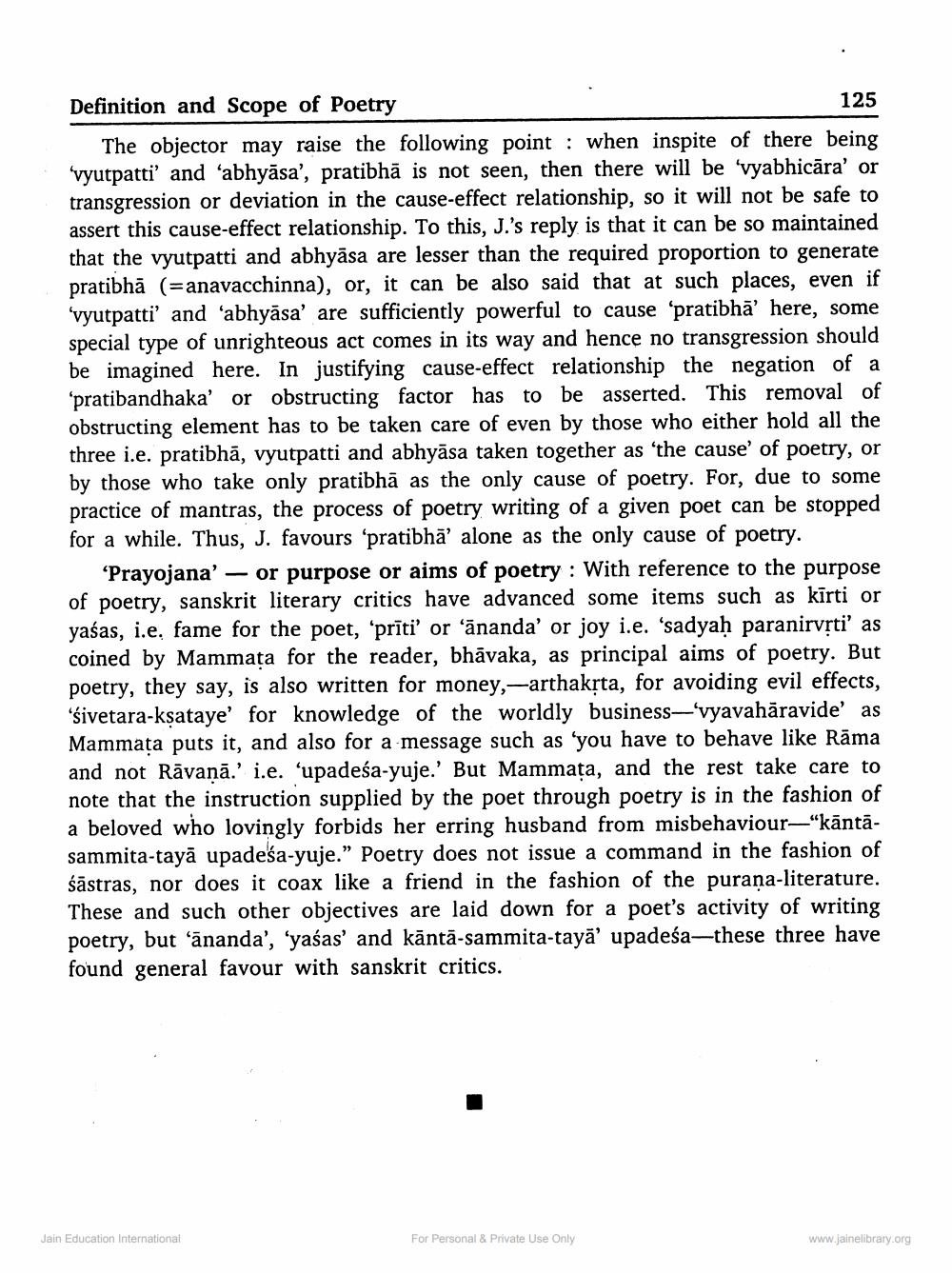________________
Definition and Scope of Poetry
125
The objector may raise the following point : when inspite of there being vyutpatti' and 'abhyāsa', pratibhā is not seen, then there will be "vyabhicāra' or transgression or deviation in the cause-effect relationship, so it will not be safe to assert this cause-effect relationship. To this, J.'s reply is that it can be so maintained that the vyutpatti and abhyāsa are lesser than the required proportion to generate pratibhā (=anavacchinna), or, it can be also said that at such places, even if vyutpatti' and 'abhyasa' are sufficiently powerful to cause 'pratibhā' here, some special type of unrighteous act comes in its way and hence no transgression should be imagined here. In justifying cause-effect relationship the negation of a 'pratibandhaka' or obstructing factor has to be asserted. This removal of obstructing element has to be taken care of even by those who either hold all the three i.e. pratibhā, vyutpatti and abhyāsa taken together as 'the cause of poetry, or by those who take only pratibhā as the only cause of poetry. For, due to some practice of mantras, the process of poetry writing of a given poet can be stopped for a while. Thus, J. favours 'pratibhā' alone as the only cause of poetry.
'Prayojana' — or purpose or aims of poetry : With reference to the purpose of poetry, sanskrit literary critics have advanced some items such as kīrti or yaśas, i.e. fame for the poet, 'prīti' or 'ananda' or joy i.e. 'sadyah paranirvrti' as coined by Mammata for the reader, bhāvaka, as principal aims of poetry. But poetry, they say, is also written for money,-arthakrta, for avoiding evil effects, 'śivetara-ksataye' for knowledge of the worldly business—'vyavahāravide' as Mammata puts it, and also for a message such as you have to behave like Rāma and not Rāvanā.' i.e. 'upadeśa-yuje.' But Mammata, and the rest take care to note that the instruction supplied by the poet through poetry is in the fashion of a beloved who lovingly forbids her erring husband from misbehaviour-"kāntāsammita-tayā upadeśa-yuje.” Poetry does not issue a command in the fashion of śāstras, nor does it coax like a friend in the fashion of the purana-literature. These and such other objectives are laid down for a poet's activity of writing poetry, but 'ānanda', 'yasas' and kāntā-sammita-taya' upadeśa-these three have found general favour with sanskrit critics.
Jain Education International
For Personal & Private Use Only
www.jainelibrary.org




